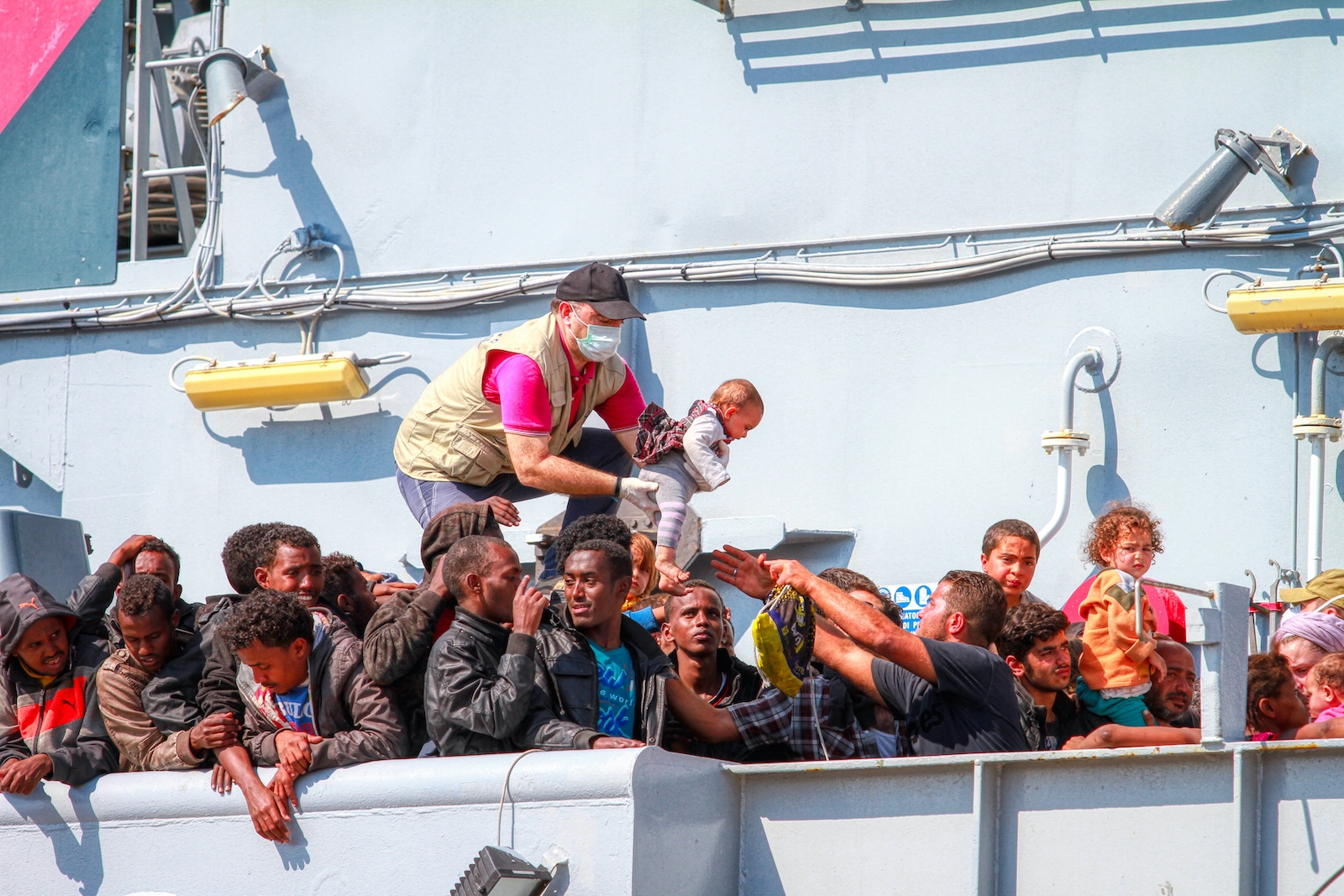
To End the Smuggling and Trafficking Crisis NATO Needs to Aid Libya
Far off the coast of Italy the picture is unforgettable. In the middle of the Mediterranean Sea, hundreds cling to a poorly constructed ship as it slowly begins to sink. People are yelling at one another, trying to level out the vessel. It is of no use. The makeshift raft has already begun to dip into the water. One by one the passengers fall into the sea. There are no lifejackets. There are no buoys. There are no survivors. This is the reality for thousands of Africans as they travel from the coast of Libya to Italy.
NATO needs to come to Libya’s aid by sending security and humanitarian aid. It should set up checkpoints and safe spaces. It should strengthen protections for migrants. The Italian government is pleading for assistance. The Libyan government is spiraling downward. NATO must step in and offset this humanitarian catastrophe.
Since the fall of Muammar Qaddafi in 2011, Libya has become the ideal route for smugglers and traffickers to Europe. People from across Africa travel to Tripoli. In weakened countries with poor economic incentives, such as Niger and South Sudan, travelers come most often. They pay smugglers with everything they have, often traveling alone. They are desperate to leave and easy targets for traffickers to exploit. Between 750,000 and 1,000,000 people have traveled through Libya. The numbers do not show how many survived.
The Libyan government is unable to control the mass influx of refugees coming to its major cities. The African Union cannot devote the proper resources to address the crisis. Worst of all, the Italian government has little choice but to send those who survive the journey back to where they started. The Italian coastguard is overworked, despite their investment in Italian and Libyan efforts to curb migration. The Libyan government needs help. The Italian government needs help. The victims need help. It is time for NATO to step up.
NATO needs to lead because so many of its member countries are affected. Italy and France, alone, are two key players in combating this crisis. The direct impact of this refugee crisis on Europe is sufficient reason for NATO to aid the Libyan government.
NATO needs to lead so Libya has a reliable partner. NATO and the African Union have attempted to collaborate in the past, unsuccessfully. NATO’s presence will repair and strengthen the relationship between them. In addition, it will show countries in Africa that NATO is an ally that will be there when needed.
NATO needs to lead because it provides legitimacy and security. Libya has many NGOs and smaller actors in Tripoli and other large cities that do the majority of the humanitarian work. The issue is that there is little security for them. NATO’s involvement offers both a humanitarian and security solution.
Many will argue that NATO is the reason for the chaos, that NATO’s actions led to the downfall of Qaddafi. NATO did not act perfectly after the fall of Qaddafi, but now is the time to make up for its past. Perhaps the Libyan government or other states will say that NATO should not meddle in issues that are outside of its domain. This is entirely incorrect. Countries within NATO are deeply affected by this crisis, and NATO’s role is to keep the peace. Perhaps the issue is too dire. Many suggest that no international actor has the ability to mitigate the crisis. This is exactly what the bad actors want everyone to believe. It is their use of fear and helplessness that blocks progress. NATO can change that grim psychology.
NATO must return to Libya to assist with the migrant crisis. No more people should fall off a makeshift raft. No more penniless travelers should be forced into trafficking. The Italian coastguard shouldn’t have to drag more bodies off the shore.
The solution to this crisis must be NATO. The European Union, African Union, and other regional actors can contribute to solving this crisis but NATO must spearhead the effort. With this international, collaborative actor, this humanitarian catastrophe can be mitigated. Libya will no longer be a highway to death but a haven for refuge. The Italian coastguard will no longer be overworked, saving overturned rafts. The people fleeing from their countries in Africa will be treated humanely, not with cruelty. Most importantly, lives will be saved.

